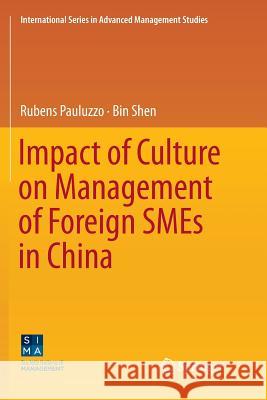Impact of Culture on Management of Foreign Smes in China » książka
topmenu
Impact of Culture on Management of Foreign Smes in China
ISBN-13: 9783030085636 / Angielski / Miękka / 2019 / 255 str.
Kategorie:
Kategorie BISAC:
Wydawca:
Springer
Seria wydawnicza:
Język:
Angielski
ISBN-13:
9783030085636
Rok wydania:
2019
Wydanie:
Softcover Repri
Ilość stron:
255
Waga:
0.37 kg
Wymiary:
23.39 x 15.6 x 1.4
Oprawa:
Miękka
Wolumenów:
01
Dodatkowe informacje:
Wydanie ilustrowane











